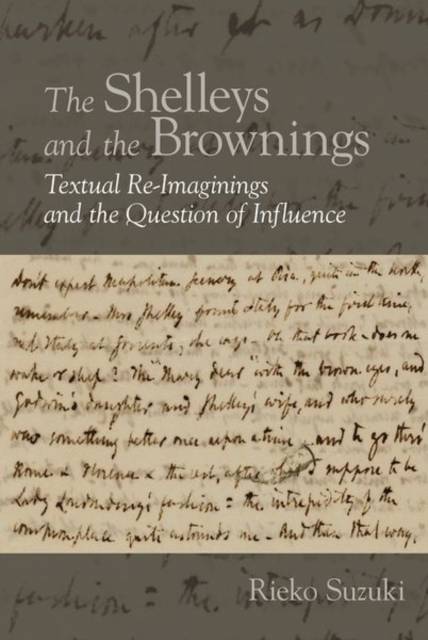
Je cadeautjes zeker op tijd in huis hebben voor de feestdagen? Kom langs in onze winkels en vind het perfecte geschenk!
- Afhalen na 1 uur in een winkel met voorraad
- Gratis thuislevering in België vanaf € 30
- Ruim aanbod met 7 miljoen producten
Je cadeautjes zeker op tijd in huis hebben voor de feestdagen? Kom langs in onze winkels en vind het perfecte geschenk!
- Afhalen na 1 uur in een winkel met voorraad
- Gratis thuislevering in België vanaf € 30
- Ruim aanbod met 7 miljoen producten
Zoeken
€ 271,45
+ 542 punten
Omschrijving
This book is about the intertextual relationships between the works of the Shelleys and the Brownings. While a lot of research has been done on the relationship between Percy Bysshe Shelley and Robert Browning, virtually nothing has been said about the links between Mary Shelley and Robert Browning, and very little on the connections between the Shelleys and Elizabeth Barrett Browning. Rieko Suzuki seeks to address this blind spot by focusing on three areas in particular: firstly, the way that Browning's later poems reflect back on and re-engage with Shelley's work; secondly, Mary Shelley's influence on Browning's early poems; and thirdly, Shelley's presence in and influence on Elizabeth Barrett Browning's writing. In mapping out the various ways in which texts relate to other texts, the book also identifies a number of important thematic threads that run throughout the work of all four writers. These include theories of history and historical consciousness, providing a further dimension to the question of 'influence'. They also include ideas about exile, gender, liberal politics and cultural heritage, central to almost all the texts discussed here, as the Shelleys and the Brownings, in different ways and in varying contexts, tried to negotiate the possibility of a more tolerant and resilient social, political and cultural environment.
Specificaties
Betrokkenen
- Auteur(s):
- Uitgeverij:
Inhoud
- Aantal bladzijden:
- 216
- Taal:
- Engels
- Reeks:
- Reeksnummer:
- nr. 9
Eigenschappen
- Productcode (EAN):
- 9781800856479
- Verschijningsdatum:
- 13/01/2022
- Uitvoering:
- Hardcover
- Formaat:
- Genaaid
- Afmetingen:
- 156 mm x 234 mm
- Gewicht:
- 485 g

Alleen bij Standaard Boekhandel
+ 542 punten op je klantenkaart van Standaard Boekhandel
Beoordelingen
We publiceren alleen reviews die voldoen aan de voorwaarden voor reviews. Bekijk onze voorwaarden voor reviews.









